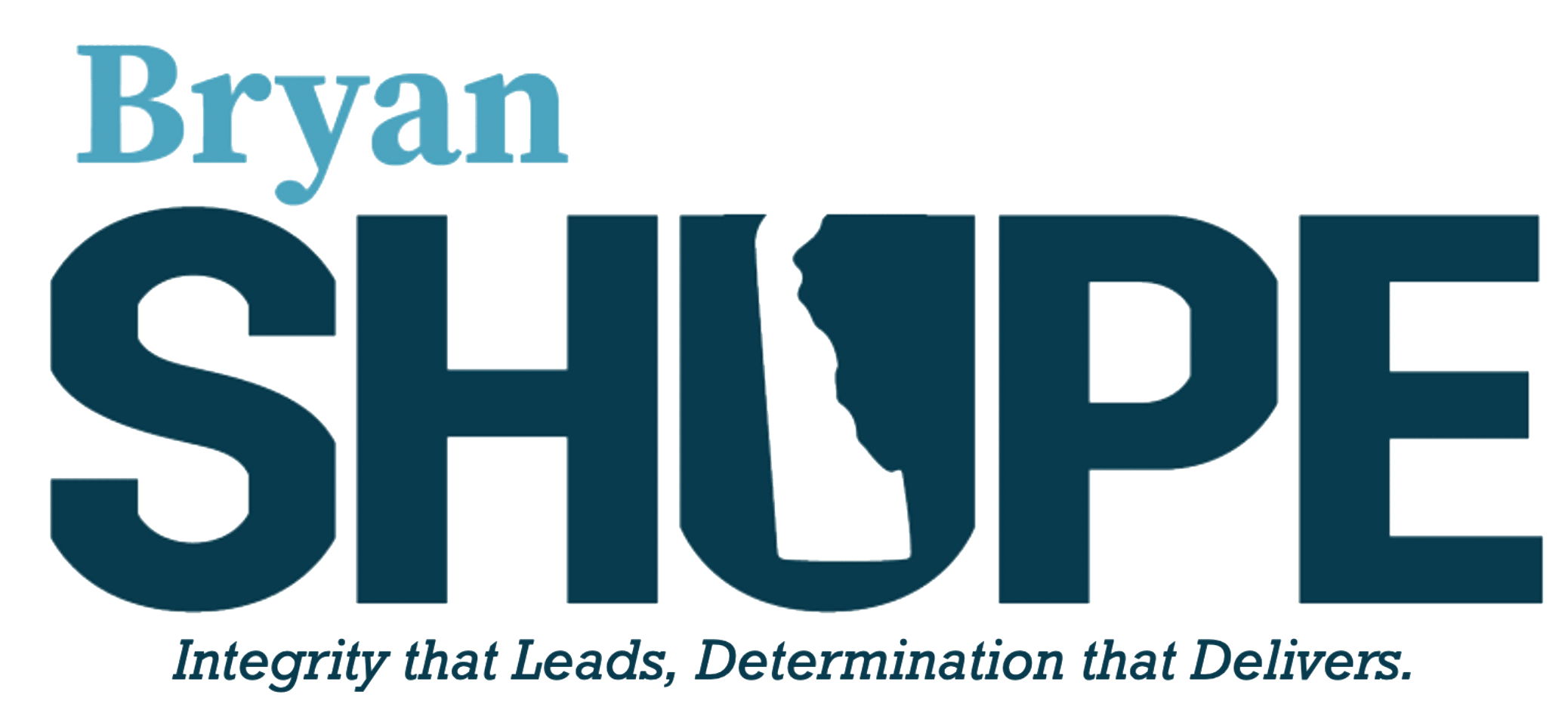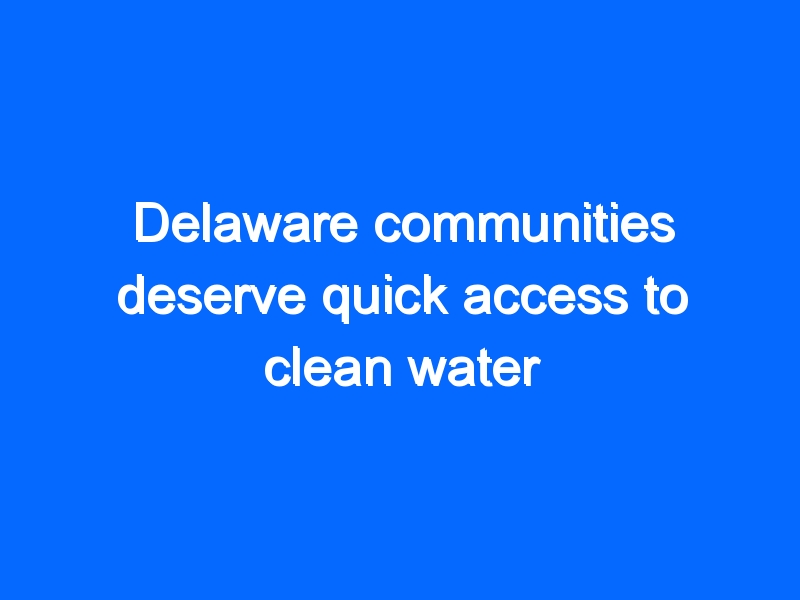
By Rep. Bryan W. Shupe
As we begin the 151st General Assembly, the State of Delaware has several critical health challenges to face head on. We look to the strength of our healthcare communities in facilitating a COVID-19 vaccine as we continue the march forward in creating a more proactive health model for residents across the First State. One effective strategy we can adopt in this endeavor is making sure resources that people utilize in their daily lives are safe. Most important are those essential for life, like water.
As part of this effort, I have submitted House Bill 69 to the General Assembly, which creates the Residential Drinking Water Purification System Grant Program. It has already received sponsors from both sides of the political aisle in the state Senate and House of Representatives. The bill establishes a pilot program through the Department of Health and Social Services (DHSS) that will allow residents who earn an income less than 200% of the poverty level of Delaware, who are not served by a central water system and whose drinking water does not meet state health standards to receive a grant that will install a purification system for the drinking water inside their homes.
The idea of the Residential Drinking Water Purification System Grant Program came to me as I visited a home in Ellendale in 2018, serving alongside the nonprofit Southeast Rural Community Assistance Project (SERCAP) and testing well water of residents to determine its safety.
One home we visited will forever stand out in my mind, that of a young mother who had a toddler who was around the age of my daughter at the time. The mother told me that the water from her home left a rash on her son’s skin and that she refused to bathe her child with the water that came from her sink and bathtub. Instead, she used bottled water to bathe him, cook food for the family and brush her teeth. Working full time at a local gas station, she spent $150 a month of the family’s income on bottled water to protect them from the water coming out of the plumbing in her home. When the water was tested by the county, she was correct — the level of nitrates was above the accepted level for human consumption, according to the state of Delaware.
Federal government, state and county officials have since performed the heavy lifting to set up the large infrastructure project of building a clean-water system for this family and others in Ellendale. This included two referendums and funding from all three levels. Residents are grateful for the countless hours and volunteers that have gotten them this far. To date, however, infrastructure has not been put into place and residents still have drinking water that is unsafe for consumption.
I understand that public input must be represented at every level of each project, funding must be allocated, engineering must be submitted, environmental concerns must be analyzed, and construction must be completed. During this process, while all these necessary steps are being held to high standards set by state law, as they should, people in our neighborhoods are still experiencing unsafe drinking water.
This bill aims to establish the Residential Drinking Water Purification System Grant Program so that state agencies can help residents in the First State on the ground level, within weeks of environmental challenges being brought to their attention. It assists our communities most vulnerable to unsafe drinking water, as well as communities that do not have resources at the individual level to address these challenges quickly.
I ask the residents of Delaware to contact their legislators to ask them to support House Bill 69, which aims to provide safe drinking water for our most vulnerable residents through a program that addresses these challenges in a timely manner and on the street level.



